libertarianism
About us
An open, user owned community for the general disscussion of the libertarian philosophy.
- Libertarianism is the belief that each person has the right to live his life as he chooses so long as he respects the equal rights of others.
- Libertarians defend each person’s right to life, liberty, and property.
- In the libertarian view, voluntary agreement is the gold standard of human relationships.
- If there is no good reason to forbid something (a good reason being that it violates the rights of others), it should be allowed.
- Force should be reserved for prohibiting or punishing those who themselves use force.
Most people live their own lives by that code of ethics. Libertarians believe that that code should be applied consistently, even to the actions of governments, which should be restricted to protecting people from violations of their rights. Governments should not use their powers to censor speech, conscript the young, prohibit voluntary exchanges, steal or “redistribute” property, or interfere in the lives of individuals who are otherwise minding their own business.
Source: https://www.libertarianism.org/essays/what-is-libertarianism

Rules
1. Stay on topic
We are a libertarian community. There are no restrictions regarding different stances on the political spectrum, but all posts should be related to the philosophy of libertarianism.
2. Be polite to others and respects each others opinions.
Be polite to others and respects each others opinions. We don't want any form of gatekeeping or circlejerk culture here.
3. Stay constructive and informational
In general, all types of contributions are allowed, but the relevance to this community must always be evident and presented openly by the contributor. Posts that do not meet these requirements will be removed after a public warning. Also remember to cite you sources!
4. Use self-moderation measures first before reporting.
This community is fundamentally built upon freedom of speech. Since everyone understands libertarianism differently and we do not want to exclude any kind of content a priori, we appeal to the individual users to block/mute posts or users who do not meet their requirements. Please bear this in mind when filing a report
view the rest of the comments
The term "intellectual property" is something completely man made and does not exists independent of our perception unlike mathematics or gravity. The "ideas" themselves are. But IP suggests that they are a kind of property, which I cannot agree with at all.
Oh FFS...
Of course the term is man made.
But the things it describes exist, and in fact you presuppose the fact that they exist when you take a position regarding the rights that should pertain to them.
And it's not only the case that they can be considered property, but that they ARE considered property.
So whether you can and will face the fact or not, what this whole thing comes down to is that you are asserting that you - whether acting for yourself or as a self-appointed representative of humanity - have a claim to that property that supersedes the creator's claim such that you, and not the creator, can rightly decide what concept of property can be rightly assigned to it.
So I ask, very precisely and for the last rime, by what right do you claim the fruits of somebody else's labor?
Dude what are you talking about? The fundamental "something" you call intellectual property is simply the idea or construct of your intellect, that is, what the poet imagines when he strings words together. Now you can say that this is his own property and no one can take it away from him, which no one disputes, not even me. Nobody takes anything away from anybody! But someone else can make exactly the same idea, the same string of words, so both have the same idea, the same thought construct. Now both possess the same idea and both have full control over it. One "possession" has become two identical "possessions", so to speak. IP is therefore only a possible designation for the condition of the control of an idea.
And now someone comes along and says that all these properties belong to him and wants to take them away from the others? With what right can he claim this? Where does he draw the line from when something is claimable at all? Otherwise everyone could run to the patent office and claim everything for himself because no one else has done it before him.